
Life had taken a turn for the worse for Rustichello of Pisa. In the dying days of the 13th century, the Italian romance writer found himself locked up as a prisoner of war. Over the previous years, Rustichello had made something of a name for himself as the first author to pen an Arthurian romance in Italian. Yet he had got himself captured while fighting for his native city in the Genoese-Pisan War. And so here he was, denied his freedom, languishing in a Genoese jail.
Yet if Rustichello was searching for some sort of salvation, he didn’t have to look far. It lay in the identity of the curious individual with whom he shared his cell. That man began telling Rustichello an extraordinary story. It was a tale of an epic journey to China – of encounters with unimaginably rich and powerful rulers, of strange and exotic lands, of brushes with creatures that would make your heart race and skin crawl. And it triggered in Rustichello an idea.
The Italian writer soon saw the potential of turning the memoirs of his well-travelled cellmate into a book. And so he set about writing them up in the default language of medieval romance: Old French, but with a smattering of Italian. The result – Travels of Marco Polo, or Le Divisament du Monde (‘The Diverse Parts of the World’), as it was originally known – was Rustichello’s crowning achievement. And it would turn his cellmate, Marco Polo, into one of the most famous figures of the entire Middle Ages.
Strange new world
Bu hikaye BBC History UK dergisinin January 2025 sayısından alınmıştır.
Start your 7-day Magzter GOLD free trial to access thousands of curated premium stories, and 9,000+ magazines and newspapers.
Already a subscriber ? Giriş Yap
Bu hikaye BBC History UK dergisinin January 2025 sayısından alınmıştır.
Start your 7-day Magzter GOLD free trial to access thousands of curated premium stories, and 9,000+ magazines and newspapers.
Already a subscriber? Giriş Yap

Viking mussels
ELEANOR BARNETT digs into archaeological research to recreate a Viking-cum-AngloSaxon seafood dish from medieval York
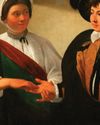
Fingers, frog's and fairies
Fortune telling was all the rage in the 16th and 17th centuries, and practitioners would stop at nothing to tap in to the supernatural. Martha McGill tells a story of Highland seers, tarot cards and encounters with the spirit world
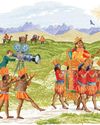
Nothing matches being with Alexander the Great on foot in the Hindu Kush
AT OUR LITTLE FILM COMPANY, MAYA VISION, we recently took the decision to digitise all of the rushes of our key films so that we could dispose of hundreds of boxes of tapes that had been kept in storage, throwing out stuff we thought we would never need again.

Library of the dead
Highgate Cemetery, created as a fashionable resting place for wealthy Victorian dead, is a veritable who's who of London's great and good. PETER ROSS roams the avenues of this most atmospheric necropolis
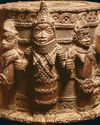
Slavery, exploitation and racism. These tragedies have long dominated histories of Africa. But there's another way to tell this story. And it's one that puts Africans right at the centre of their continent's extraordinarily rich and vibrant past
An 1414, in the Chinese city of Nanjing, a giraffe caused a stir. Amid a crowd of shocked, noble spectators, an official, leading the creature via a rope tied round its face, presented it to China's Yongle emperor. His officials said it was a qilin - an auspicious unicorn - which his sage governance had made appear.
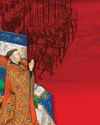
England's forgotten hero
When the Hundred Years' War was reaching a climax, one man was fighting tenaciously to secure the English claim to the French crown. So why, asks Joanna Arman, is Henry V's formidable brother, John, Duke of Bedford, not better known?
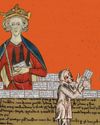
HENRY III AND THE MAGNA CARTA THAT MATTERED
King John's sealing of a charter at Runnymede in 1215 is one of the most feted moments of the Middle Ages. Yet, writes David Carpenter, it was the charter issued by his son 10 years later that became fundamental to England's history
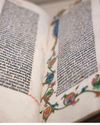
Gutenberg publishes a pioneering new book
‘The printing press triggers an information revolution
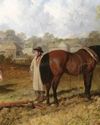
How empire ruptured rural Britain
We know that enslaved Africans and their descendants suffered in the distant colonies of empire. But, as Corinne Fowler explains, the colonial system also had dire impacts on people in the countryside of the 'motherland'
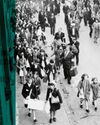
"I FELT VERY ALONE IN A WORLD GONE HORRIBLY MAD"
It was a moment of possibilities, dislocation and dread. Dan Todman tells the story of the 1.5 million urban Britons evacuated to the countryside at the start of the Second World War